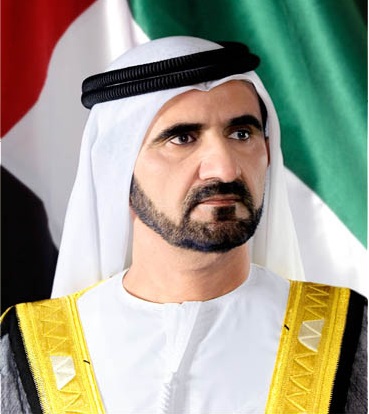Mohammed bin Rashid issues new legislation to expand Dubai Media Council’s mandate

His Highness Sheikh Mohammed bin Rashid Al Maktoum, Vice President, Prime Minister and Ruler of Dubai, issued Law No. (29) of 2024 pertaining to the Dubai Media Council. The Law grants the Council expanded powers and responsibilities to implement strategies and plans for the advancement of Dubai’s media sector.
The new Law will be effective upon its publication in the Official Gazette.
H.H. Sheikh Mohammed also issued Decree No. (66) of 2024, designating the Dubai Media Council as the regulatory authority for media activities across Dubai, including special development zones and free zones such as the Dubai International Financial Centre. The Dubai Development Authority will retain its jurisdiction over media activities within its designated zones but will coordinate with the Council on regulatory matters.
Further, H.H. Sheikh Mohammed bin Rashid issued Decree No. (67) of 2024 to transfer the Dubai Film and TV Commission from the Dubai Development Authority to operate under the Dubai Media Council.
H.H. Sheikh Ahmed bin Mohammed bin Rashid Al Maktoum, Second Deputy Ruler of Dubai and Chairman of the Dubai Media Council, said the new legislation is part of a strategic realignment in the media sector’s governance, guided by Sheikh Mohammed bin Rashid’s vision for its advancement.
He said the expanded mandate will enable the Council to introduce transformative changes in Dubai’s media landscape, aligned with the leadership’s ambitious goals to consolidate the emirate’s profile as a global hub for creativity, innovation, and talent.
By leveraging the new mandate, the Council will focus on fostering an environment that attracts top talent and leading media institutions from around the world.
Sheikh Ahmed stated, “Mohammed bin Rashid’s vision for Dubai’s media sector inspires us to accelerate our efforts to enhance the industry and its ecosystem. The new legislation empowers the Council to launch innovative initiatives to strengthen Dubai’s role as a leading global media hub. With clear strategies and performance metrics in place, we are committed to driving progress and staying ahead of global industry trends.”
Law No. (29) of 2024 outlines the Dubai Media Council’s objectives, including integrating media efforts across the emirate, adopting a unified strategic vision for the media sector, monitoring the implementation of media strategies, and enhancing Dubai’s competitiveness as a global media hub. The Law also seeks to bolster Dubai’s status as a destination for young media talent, support the development of Emirati media professionals, and promote the film and video gaming industries.
Expanded mandate
The Law broadens the Council’s mandate as the main government authority responsible for regulating Dubai’s media sector. Pursuant to the Law, the Council’s responsibilities also include promoting research, innovation, and development; implementing strategies for the global promotion of the film and video gaming industries; fostering local talent; and attracting domestic and foreign investments.
As part of the strategic realignment of the media sector’s governance, the Dubai Films and Games Commission will be established under the Dubai Media Council. This newly formed commission will succeed the Dubai Film and TV Commission, with a focus on advancing the film and gaming industries, which are pivotal to the growth of Dubai’s media ecosystem.
Mona Al Marri, Vice Chairperson and Managing Director of the Dubai Media Council, commented, “This legislation marks the beginning of a new phase of growth for Dubai’s media landscape, which is set to further solidify the city’s stature as a global media hub. By expanding the Council’s mandate to oversee the media sector, formulate policies, and establish clear regulations for media activity across the emirate, the legislation creates a strong foundation for sustained progress.”
She added, “Dubai’s development has always been anchored in clear and flexible legislative frameworks that adapt swiftly to global changes. These frameworks are crucial for fostering investment, discovering and nurturing local talent, and equipping them with the resources needed to succeed. By establishing a regulatory environment rooted in a comprehensive understanding of the industry’s needs, the new legislation will enhance the competitiveness of Dubai’s media sector. The Council remains committed to developing supportive policies that reinforce Dubai’s status as a leading regional and global hub for creative excellence in media.”
In another initiative, as part of the Dubai Media Council’s expanded mandate, a new entity called the Dubai Media Permits Office will be established.
Nehal Badri, Secretary-General of the Dubai Media Council, said the Dubai Media Permits Office, operating under the Council, will issue permits for media activities in the emirate and coordinate with the Dubai Development Authority on activities within its jurisdiction. The office will develop a comprehensive strategy for regulating these activities in collaboration with the authority.
“The Dubai Media Permits Office will adopt a streamlined and agile approach, aligned with the evolving needs of the media industry. By fostering a seamless operational environment for media entities, it will further reinforce Dubai’s position as a pre-eminent regional and global hub for media innovation and excellence,” she said.
Speaking about the scope of the Dubai Films and Games Commission established under the Council, Badri said it will establish regulatory frameworks to support the growth of the film and video gaming industries and enhance their contribution to Dubai’s economy. The commission will oversee the creation and development of digital platforms for film and game production and distribution, promote local films and games in international markets, and support local brands, further solidifying Dubai’s status as a leading global centre for media development.
The Dubai Films and Games Commission’s responsibilities also include organising exhibitions, events, conferences, missions, training programmes, and workshops related to the film and gaming industries locally and internationally. It will develop reports on the performance of these sectors, analyse data, and guide the development of policies to ensure their competitiveness.
WAM

